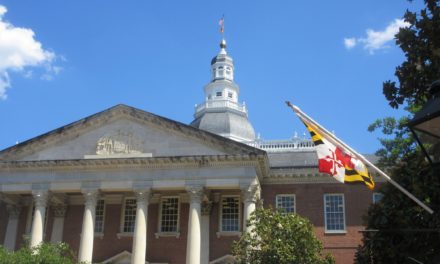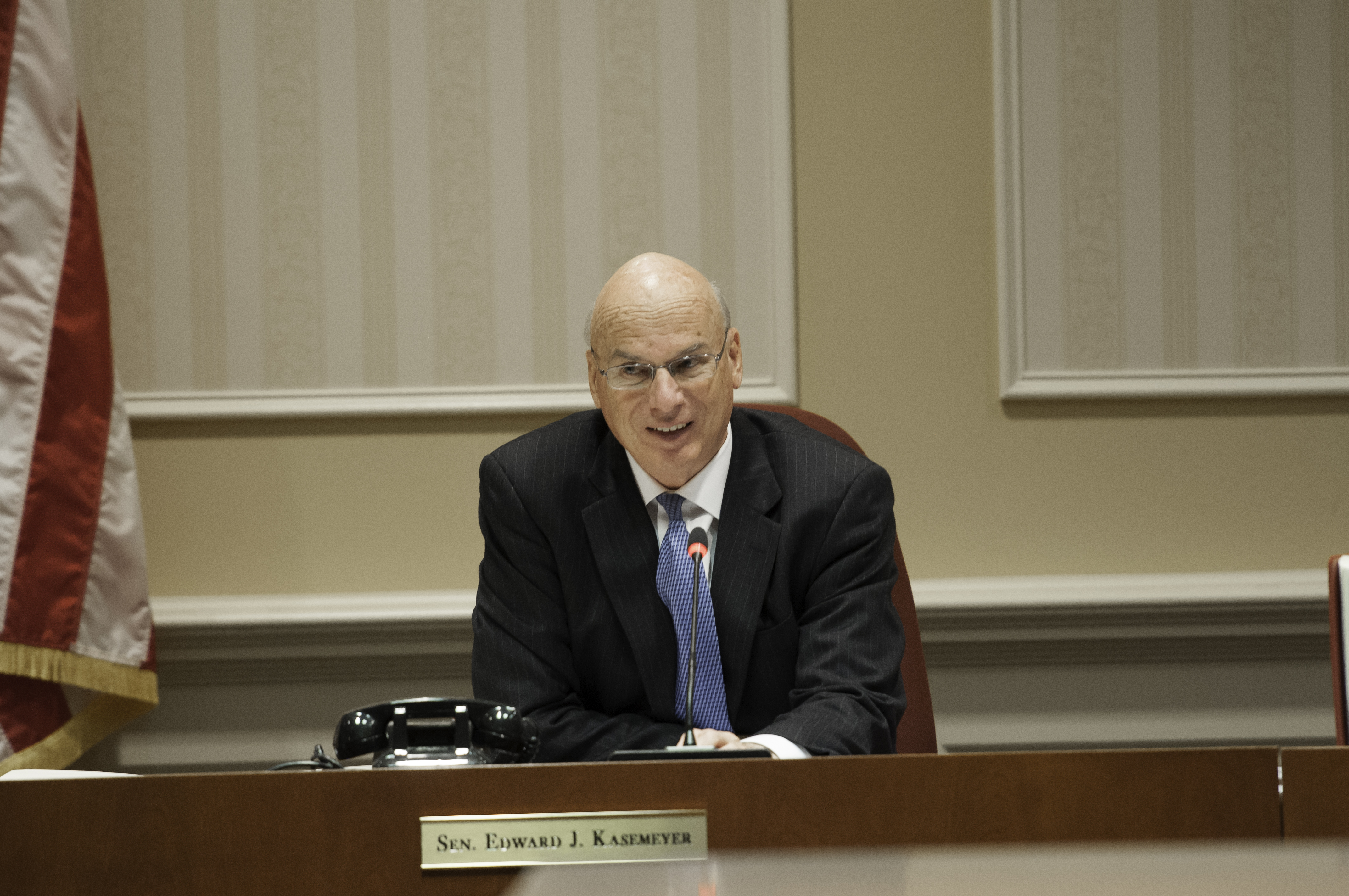By Len Lazarick
Len@MarylandReporter.com
CAMBRIDGE, MD. — After several years of pummeling by state government, through cuts in aid, offloading of state expenses and unfunded mandates, county officials gathered here for their annual conference believe that “enough is enough,” said Rick Pollitt, new president of the Maryland Association of Counties.
Facing the new session of the legislature next week, county officials want a reprieve from any more damage flowing downhill from Annapolis.
Like many of the hundreds of elected and appointed officials here, Pollitt, the first county executive of Wicomico County on the lower Eastern Shore, can reel off the series of actions taken by the governor and the legislature to balance the state budget on the backs of county governments, which are just as hard-pressed by flat revenues.
Taking hits from the state
While money for schools has kept pace, funding for health departments and roads has been slashed. CORRECTION: The state has just shifted about a quarter half of its full funding of teacher pensions costs onto the counties, and reinforced requirements to maintain local funding for education. The state also is forcing counties to impose new fees for storm-water management, and restrict expansion of septic systems that help fuel residential growth in some rural areas. Counties have also been saddled with new federal requirements to reduce nutrients that flow into the Chesapeake Bay.
The most serious loss for many local jurisdictions has been the $700 million cut to highway user revenues that were shifted into the general fund to bolster other programs, like school aid.
“That’s big. That was the most significant hit,” said Pollitt, a Democrat. For his own county, highway funding went from $7 million down to $200,000.
The counties fought those cuts, and also waged a losing battle against the shift of half of teacher pension costs and more stringent requirements for “maintenance of effort” on school funding.
“I’m not going to raise taxes just to pay for schools,” said Laura Price, a Republican member of the Talbot County Council. While Talbot is considered one of Maryland’s wealthiest counties, due to the number of high-income residents with shore-front properties, Price said median incomes in Talbot County are actually below the state average.
“Teachers are very important, but they’re not more important than EMTs” and other public safety workers, Price said.
Elaine Kramer, chief financial officer for St. Mary’s County, said that other than schools, “we’re operating at 1999 staffing levels.”
Gov. Martin O’Malley emphasizes the continued payment of $5.6 billion in state aid for schools. But Kramer said, “They weren’t paying their fair share for all those years.” The counties were actually picking up the responsibility for school funding mandated in the state constitution.
Protecting the Bay responsibly
But the legislature has also been piling other mandates onto county governments, particularly to reduce the flow of polluting nutrients into the Chesapeake Bay by restricting development on rural land, and other measures.
Pollitt said there is broad agreement across Maryland that “the Chesapeake is a national treasure.”
“There’s got to be a way to protect the Bay responsibly,” Pollitt said.
He said scientific experts differ on what is the most significant source of Bay pollution. Eastern Shore officials have recently pointed to the polluted sediment behind the Conowingo Dam at the mouth of the Susquehanna River as a major source of nutrients, particularly after major storms wash sediment from the river’s watershed in Pennsylvania.
Pollitt would like to see MACo “serve as a catalyst to bring the parties together on land use.”
“I’m bothered by the sharpness of the debate,” he said, and the conflicting views of experts with equally credible credentials. “Let’s get the right minds at the table and hammer things out.”
Transit funding a major concern
One of the biggest concerns for Maryland’s two largest counties is the need for more revenues for the Transportation Trust Fund to help fund major transit projects such as the 16-mile Purple Line from Bethesda to New Carrollton and the Corridor Cities Transitway along I-270.
Roger Berliner of the Montgomery County Council said that there will be no money in the Transportation Trust Fund to build either one unless revenues increased.
He favors an increase in the sale tax dedicated to transportation, because “it is the easiest to do politically” and “it brings in the most revenues.”
“This will be a difficult battle without the governor’s personal commitment and muscle,” Berliner said. “With it, we have a fighting chance.”
Without transportation funding, “my county will continue to lose it competitive edge to Northern Virginia,” he said. “I want to make progress. I want the state to live up to its responsibility.”
Recent state tax hikes have fallen heavily on Montgomery County, particularly on the high-earners that live in Berliner’s district, which stretches south from Martinsburg, through Potomac, Bethesda and Chevy Chase. But if the legislature can’t pass a statewide sales tax increase, he’d like lawmakers to give the county authority to levy its own sales tax for transit.
Impact of federal cuts
Looming over all these local concerns is the impact of potential spending cuts from the federal level.
Comptroller Peter Franchot, playing a role usually filled by the governor, inaugurated the new MACo officers, and gave his read on the state fiscal picture.
Democrat Franchot was highly critical of both parties and their ineffective action in Washington. He noted that “more than a third of the state’s economic activity comes from the federal government.”
“Sequestration is a Latin word for economic disaster in Maryland,” he said, if mandated sharp cuts in federal spending happen in two months. “We’re talking about significant economic loss.”
“I’m on red alert” about those federal moves that could affect state and local revenues, Franchot said. At the same time, “we need to be concerned that the private sector is still struggling.”






Recent Comments